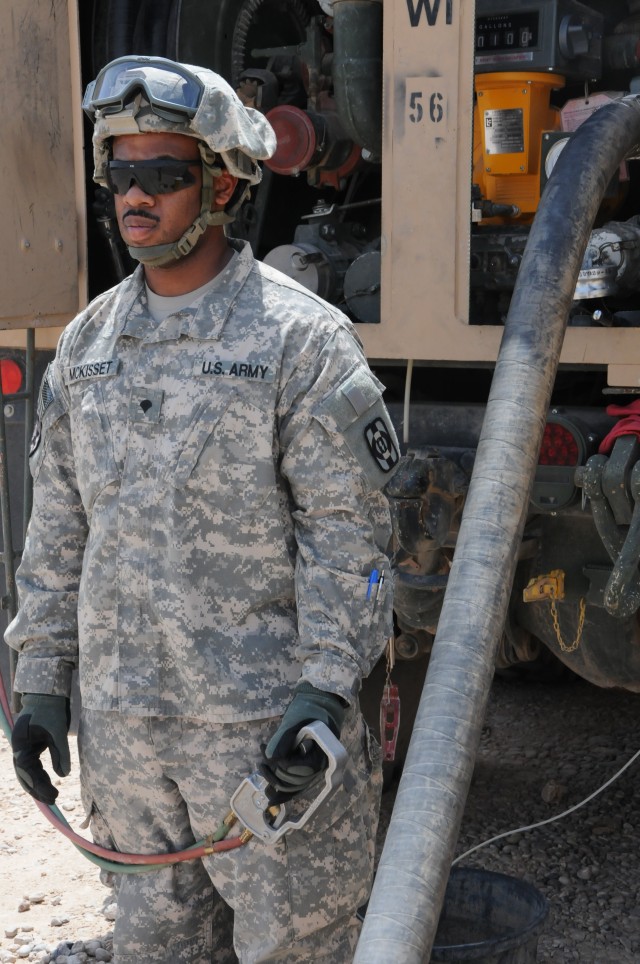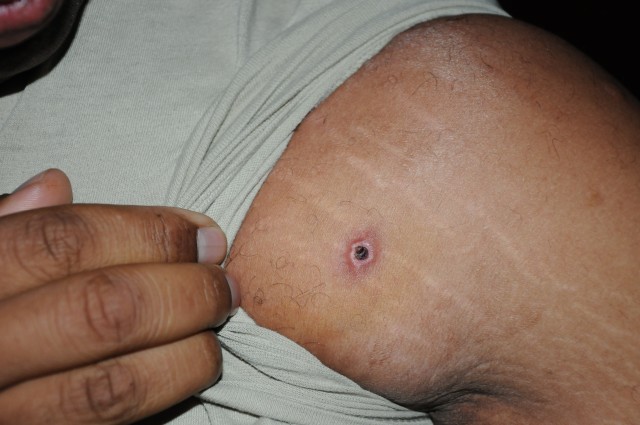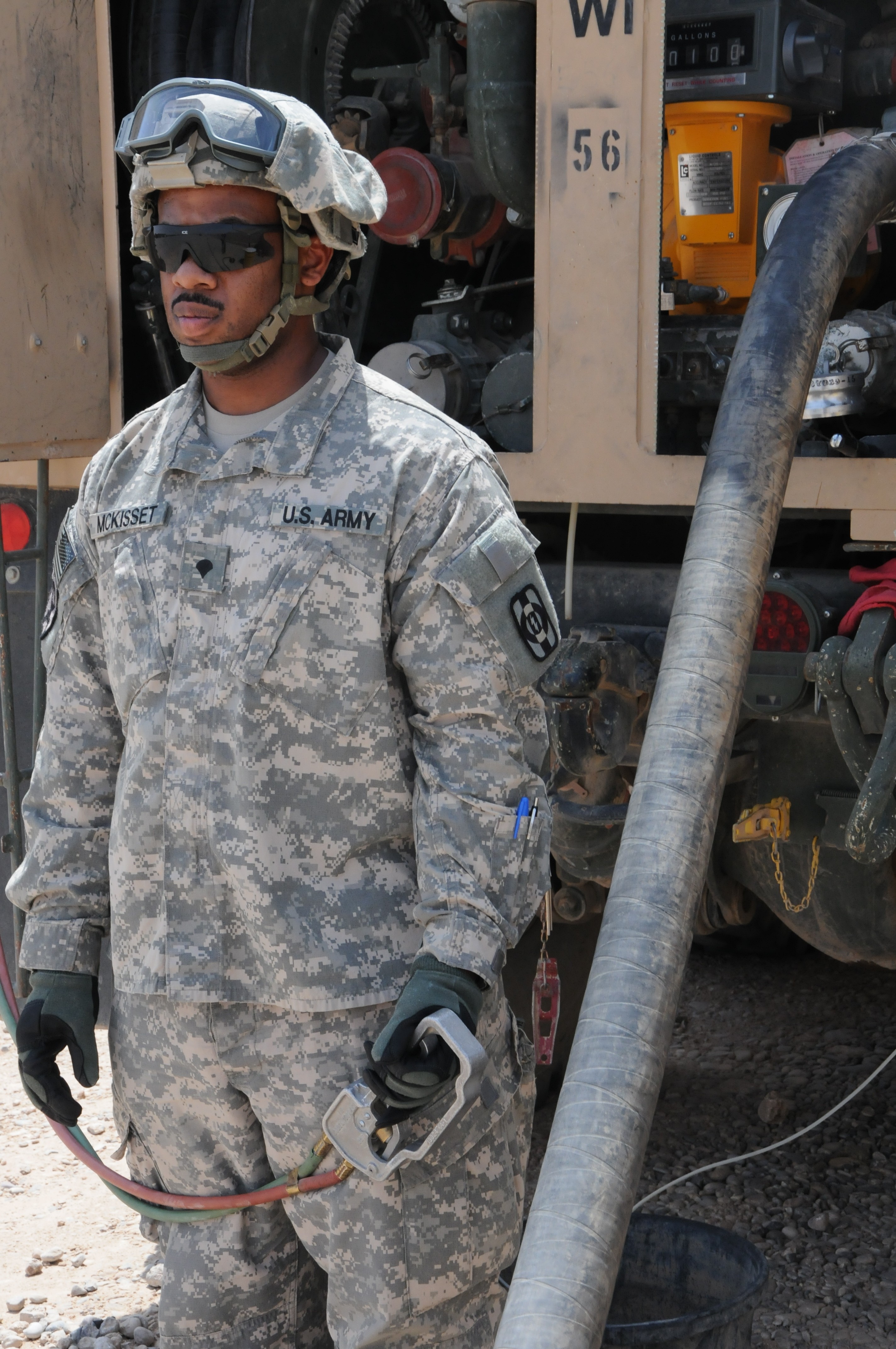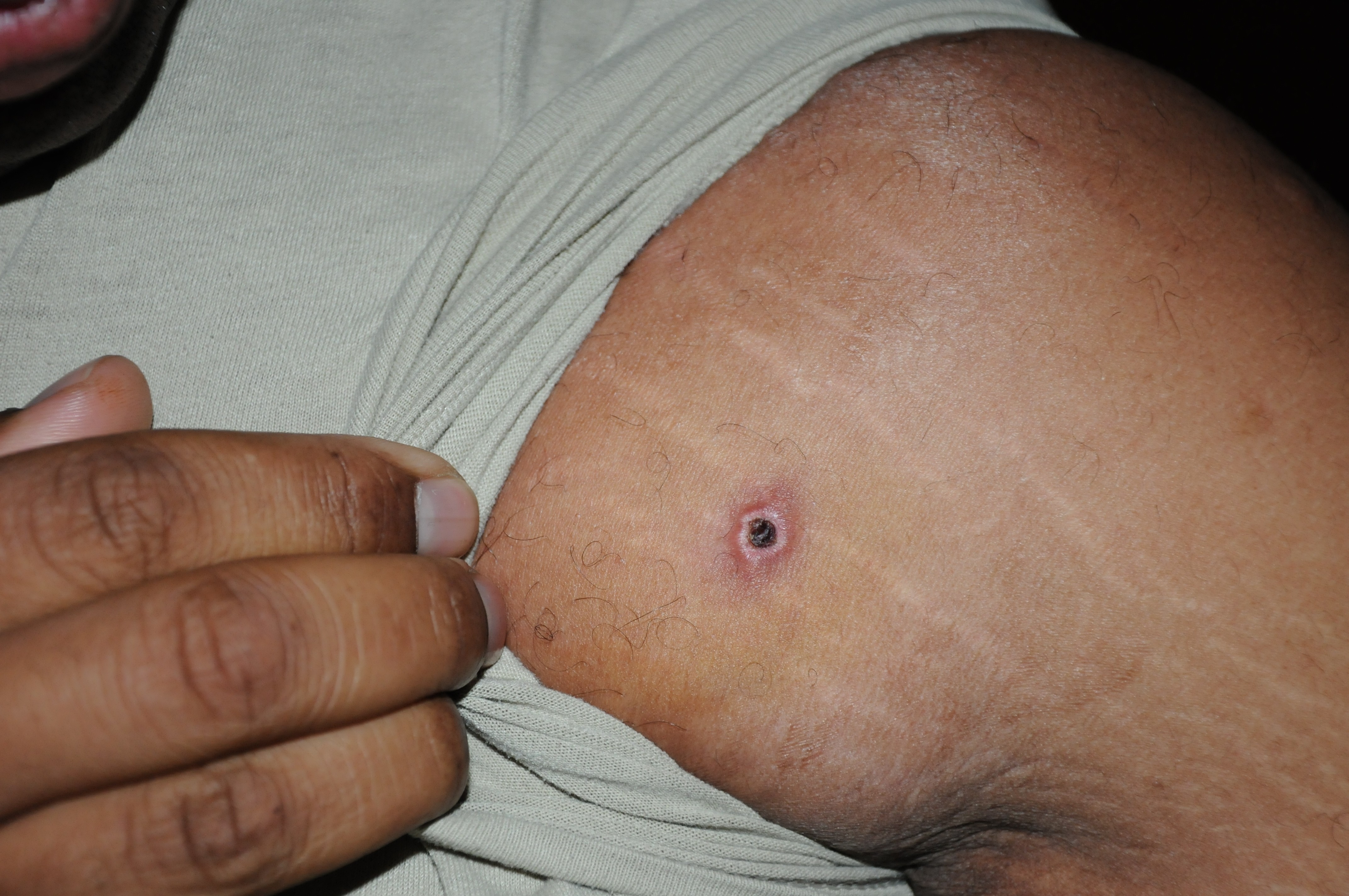FORWARD OPERATING BASE COBRA, Iraq - Specialist Crystal Hodges, an aviation fueler with the 512th Quartermaster Company, 13th Combat Sustainment Support Battalion, 3rd Sustainment Brigade, 103rd Sustainment Command (Expeditionary), and native of Grand Rapids, Mich., walks down a gravel road to the aid station for the medical personnel to clean, re-bandage and repack her 4-inch-deep leg wound. The shrapnel from the mortar blast is still in there, but it doesn't deter her from returning to work or continuing her daily routine.
"It was the wrong place at the wrong time. You can't really prevent that," Hodges said. "You've got to just take things as they come and move on. I knew things like this could happen, but that won't keep me from doing my best and doing my work."
For her and two other 512th Quartermaster Co. Soldiers, the mortar attack that occurred July 28 on Forward Operating Base Cobra was just another part of the job at the forward armament and refueling point.
"With a mortar round, you just never know when it will come or where it will hit, but I still go out and do everything I regularly do," said Spc. Bobby McKisset, an aviation fueler for the 512th Quartermaster Co., and native of Washington, D.C. "I can't let it hinder me from doing my job or just living."
The mortar round, which occurred around 11 p.m. that night, didn't deter them from performing their mission the next day. Even with a rock lodged in his shoulder, which McKisset said he dug out himself with his Gerber multi-tool the same night, he and his fellow Soldiers were at work the next night.
"I'm really happy we can laugh about it now," he said. "We all got really lucky. I am really happy to be alive, but this mission carries on."
First Lieutenant Thomas Pritchard, platoon leader for the FARP at FOB Cobra, 512th Quartermaster Co., and native of Pittsburgh, Pa. said he was very proud of his Soldiers.
"They were ready to go back to work right after being bandaged up," he said. "They have to go to the aid station every day to get their wounds dressed and repacked, but they are at work on time every day. I am very proud of them. After what happened and for them to come back to work that soon shows how resilient they are. They realize the importance of the mission and never let this impact their work."
"I just think of it as our duty. It's just part of the job," said Sgt. Willie R. Bell, an aviation fueler for the 512th Quartermaster Co., and native of Swainsboro, Ga. Bell was also in the blast and has shrapnel still lodged in his head and leg. "A lot of other people have been shot, blown up and hurt, but we still have to come back and do this, no matter what happens."
Each Soldier said that the blast happened so fast that they only had time to react, but in retrospect, the blast hit close to home and made the war in Iraq a little more real.
"It happened so fast that nothing was really going through my head except making sure my Soldiers were okay," Sgt. Bell said. "It woke me up. I wasn't expecting something like this to happen. I was hoping for a quiet deployment, get it over with and go ahead back home."
Specialist McKisset was also surprised by the event and even angry, but admitted that Bell, Hodges and himself were lucky to be alive.
"I was in shock at first and a little angry because I was just trying to relax outside. That was the last thing I expected to happen that night," said Spc. McKisset. "It hit home, because after the blast, I thought about my wife and kids. It could've been a lot worse than it was. It could've been a whole lot worse."




Social Sharing